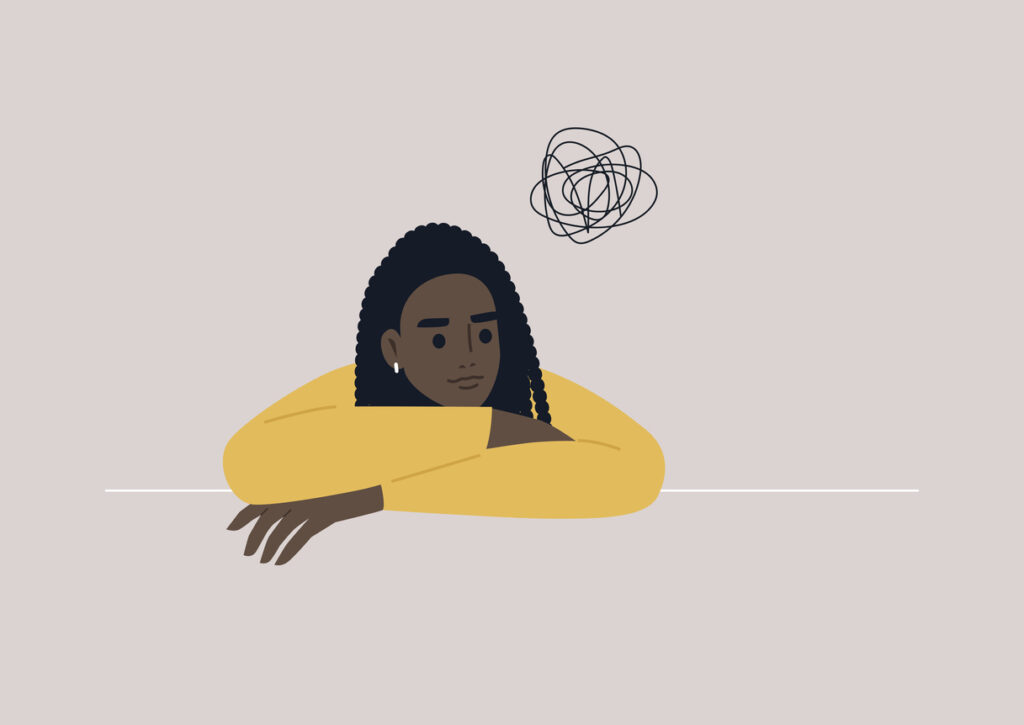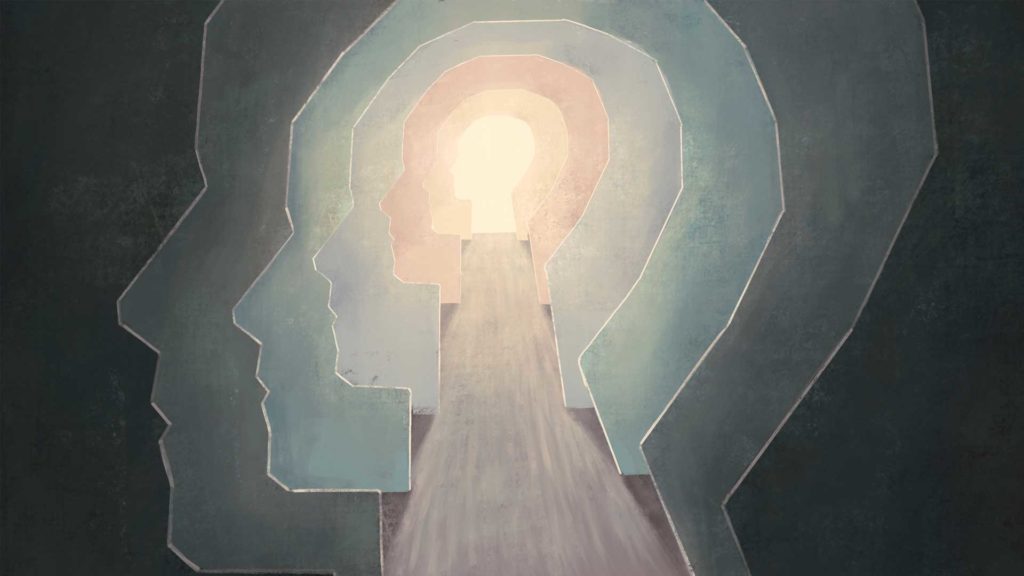
Ketamine Therapy for Seniors

Many factors have contributed to drastically rising rates of depression and other mental health concerns across the world. According to the CDC, major depression in older people ranges from less than 1% to about 5% but rises to 13.5% in those who require home healthcare and to 11.5% in older hospitalized patients.
Although there are several medications available for depression, anxiety, and substance use disorders, typically requiring daily administration of a medication aimed at correction of neurochemical imbalances via action at specific brain receptors (e.g. serotonin, dopamine, mu opioid), this can be “an exhausting process” for the individual, “with the average treatment taking weeks—or even months—before improvements were noticeable”.
However, Ketamine therapy has recently emerged as a novel, rapid-acting option for treatment-resistant depression (TRD) in adults. Ketamine has been found to be helpful in the treatment of both unipolar and bipolar depression. Low-dose IV ketamine, or ketamine infusion therapy, provides “a newer depression treatment alternative” as a fast-acting and effective antidepressant available due to the noticeable therapeutic benefits, often seen within hours post-treatment.
What Is Ketamine Therapy?
Ketamine Therapy is a form of psychotherapy that involves the use of ketamine to enhance the therapeutic process. The dissociative anesthetic properties of the substance have caused for Ketamine-Assisted Psychotherapy (KAP) to be studied beyond the traditional medical usage as a sedative and pain reliever, but also for its potential use in treating a range of mental health conditions, including depression, anxiety, PTSD, chronic pain, and other mental health and substance use disorders.
Typically, a licensed healthcare provider administers a controlled dose of ketamine to the patient during ketamine treatment in a supervised clinical setting. Simultaneously, a therapist or other mental health care provider performs psychological support and guidance throughout the infusion process to maximize ketamine’s benefits.
Ketamine therapy is typically not a standalone treatment, but rather adjunctive therapy used in combination with traditional talk therapy as a catalyst to promote healing, help patients gain greater self-awareness, insight, and emotional resilience, and to facilitate lasting positive change in their lives. Ketamine treatment has been known to enhance the therapeutic process by facilitating introspection, subsequently reducing anxiety and depression symptoms, and helping patients access and process deeply buried emotions and traumas.
Intravenous (IV) ketamine infusion is the most commonly used route however, other routes have been studied and have been found to have comparably profound benefits such as oral administration, intranasal, subcutaneous, intramuscular, and sublingual.
While oral, intranasal, and sublingual routes offer the ease of administration over IV, intramuscular or subcutaneous routes, intramuscular and IV routes have the advantage of higher bioavailability compared with other routes as noted later. There has also been growing interest in S-ketamine, the 28 mg S-ketamine (esketamine) nasal spray approved in March 2019 by US Food and Drug Administration for use in treatment-resistant depression in conjunction with an antidepressant, due to the aforementioned favorable properties.
How Does Ketamine Therapy Work?
Ketamine therapy typically involves receiving a series of low-dose ketamine infusions over a period of several weeks. Usually, ketamine treatment includes one or a few in-clinic ketamine dosing sessions under clinician supervision integrated with preparatory and integration counseling. By harnessing the potential psychedelic effects of ketamine, the aim is to achieve more sustained results with fewer ketamine treatments compared to IV ketamine infusions without accompanying psychotherapy. This treatment has shown promise in alleviating symptoms of depression, anxiety, and other mental health conditions, even in patients who have not responded to traditional treatments.
Practical Considerations for Using Ketamine Therapy in Seniors
As in younger populations, ketamine has the potential, in low doses, to be well-tolerated in rapidly improving the symptoms of depression. Therefore, Ketamine infusion therapy has been shown to be safe and effective for older adults with treatment-resistant depression.
“Elderly patients with severe depression face additional barriers when seeking treatment for the condition”, such as being often prescribed multiple medications that may interact with antidepressants and “may cause more side effects or have lower efficacy as the brain ages”, according to Duncan George, MBBS, of University of New South Wales, Sydney’s statement in a press release. Steven Levine, M.D. of Ketamine Treatment Centers told Healio Psychiatry that because ketamine is regarded as very safe, “even in more fragile medical conditions, and is given intermittently (with no constant level of medicine in the system), it is a particularly safe option for the elderly.”
When considering the use of ketamine therapy for seniors, there are several practical considerations that healthcare providers should keep in mind:
Medical History
Elderly patients may have underlying medical conditions such as cardiovascular disease, liver or kidney dysfunction, or respiratory problems. Duncan George, MBBS, of the University of New South Wales, Sydney, explained that “Older people are also more likely to have co-morbidities like neurodegenerative disorders and chronic pain, which can cause further complications due to ketamine’s reported side effects. Healthcare providers should conduct a thorough medical history and physical exam to assess the patient’s overall health and determine if they are a good candidate for ketamine therapy. Duncan George’s research indicates that “a dose-titration method may be particularly useful for older patients, as the best dose was selected for each individual person to maximize ketamine’s benefits while minimizing its adverse side effects.”
Medications
Elderly patients may be taking multiple medications for various medical conditions, and ketamine can interact with some of these medications. Healthcare providers should carefully review the patient’s medication regimen to avoid potential interactions that could cause adverse effects.
Dose
Elderly patients may be more sensitive to the effects of ketamine due to changes in metabolism and other age-related factors. Therefore, a lower initial dose should be used, and the patient’s response should be closely monitored to determine the appropriate dosage.
Monitoring: Ketamine therapy should be administered in a controlled environment such as a hospital or clinic, where the patient’s vital signs and mental status can be closely monitored. Elderly patients may be more vulnerable to the side effects of ketamine, including confusion, dizziness, and hallucinations, so healthcare providers should be vigilant in monitoring for these adverse effects.
Education
Elderly patients and their caregivers should be educated on the potential benefits and risks of ketamine therapy, as well as the expected outcomes and potential side effects. They should also be informed of any precautions they need to take before and after treatment, such as avoiding driving or operating heavy machinery.
In summary, the use of ketamine therapy in seniors requires careful consideration of the patient’s medical history, medication regimen, and potential risks and benefits. Close monitoring and education of the patient and their caregivers can help ensure a safe and effective treatment experience.
Potential Risks of Ketamine Therapy
While ketamine treatment for depression and other mental health conditions has shown promising results in clinical studies, it is important to approach the use of ketamine in elderly patients with caution due to their increased risk of adverse side effects. While ketamine can be effective in treating depression and other mental health conditions, it is not typically recommended for elderly patients due to their increased risk of adverse side effects.
Elderly patients may be more sensitive to the effects of ketamine and may experience confusion, agitation, and hallucinations. Additionally, elderly patients are more likely to have underlying medical conditions, such as being at a higher risk of deteriorating physical and cardiovascular health as well as cognitive function decline, which may be exacerbated by ketamine use.
While there is limited research on the use of ketamine in elderly patients, some studies suggest that low-dose ketamine may be effective in treating depression in this population. If a healthcare provider determines that ketamine is an appropriate treatment for an elderly patient, they will likely start with a lower dose and carefully monitor the patient for any adverse effects. However, in general, other treatments may be more appropriate for elderly patients with depression or other mental health conditions, such as psychotherapy or medication options with fewer side effects. It is important for healthcare providers to carefully evaluate the risks and benefits of any medication before prescribing it to an elderly patient.
Side Effects of Ketamine Therapy for Seniors
A recent systematic review found that the most common acute side effects after the administration of ketamine for the treatment of depression are headache, dizziness, dissociation, elevated blood pressure, and blurred vision, and some short-term memory loss. Psychiatric symptoms, particularly anxiety, are often reported.
A large number of studies have reported cystitis and bladder dysfunction related to ketamine, with an increase in urinary frequency, urgency, dysuria, urge incontinence, and occasionally painful hematuria.
Acute side effects were reported to resolve mostly spontaneously, shortly after drug administration. However, healthcare providers must carefully evaluate the risks and benefits of ketamine treatment for each elderly patient and monitor them closely for any adverse effects. If a healthcare provider determines that ketamine is an appropriate treatment for an elderly patient, they will likely start with a lower dose and carefully monitor the patient for any adverse effects. The treatment may be administered in a controlled environment such as a hospital or clinic.
It is important to note that ketamine is not a first-line treatment for depression or other mental health conditions in elderly patients, and other treatment options with fewer side effects should be considered first, such as psychotherapy or other medication options.
Is Ketamine Therapy Right for Your Senior Loved One?
Though there is very limited data on the safety profile and use of ketamine in older adults, and side effects are an important consideration in the use of ketamine, particularly in older patients, Ketamine treatment for treatment-resistant depression (TRD) can be used to restore brain circuity.
Ketamine infusion “rapidly proliferates your brain circuits with an abundance of new synapse connections that make the way” for “tackling and shedding some difficult issues” and lowering depressive moods and comorbid symptoms like irritability, edginess, withdrawal, lethargy, apathy, and fatigue, in order to resurge feelings of joy, creativity, insight, motivation, and energy.
Ketamine may also be beneficial in aiding in the grief process, helping to “think through the grief in a healthy, healing way”. If you or a loved one is looking to “make a fresh start wherever you are in your life”, ketamine treatment might be a valuable option to consider.
Content on this site is for reference and information purposes only. Do not rely solely on this content, as it is not a substitute for advice from a licensed healthcare professional. Aging.com assumes no liability for inaccuracies. Consult with your doctor before beginning any medications or programs.



